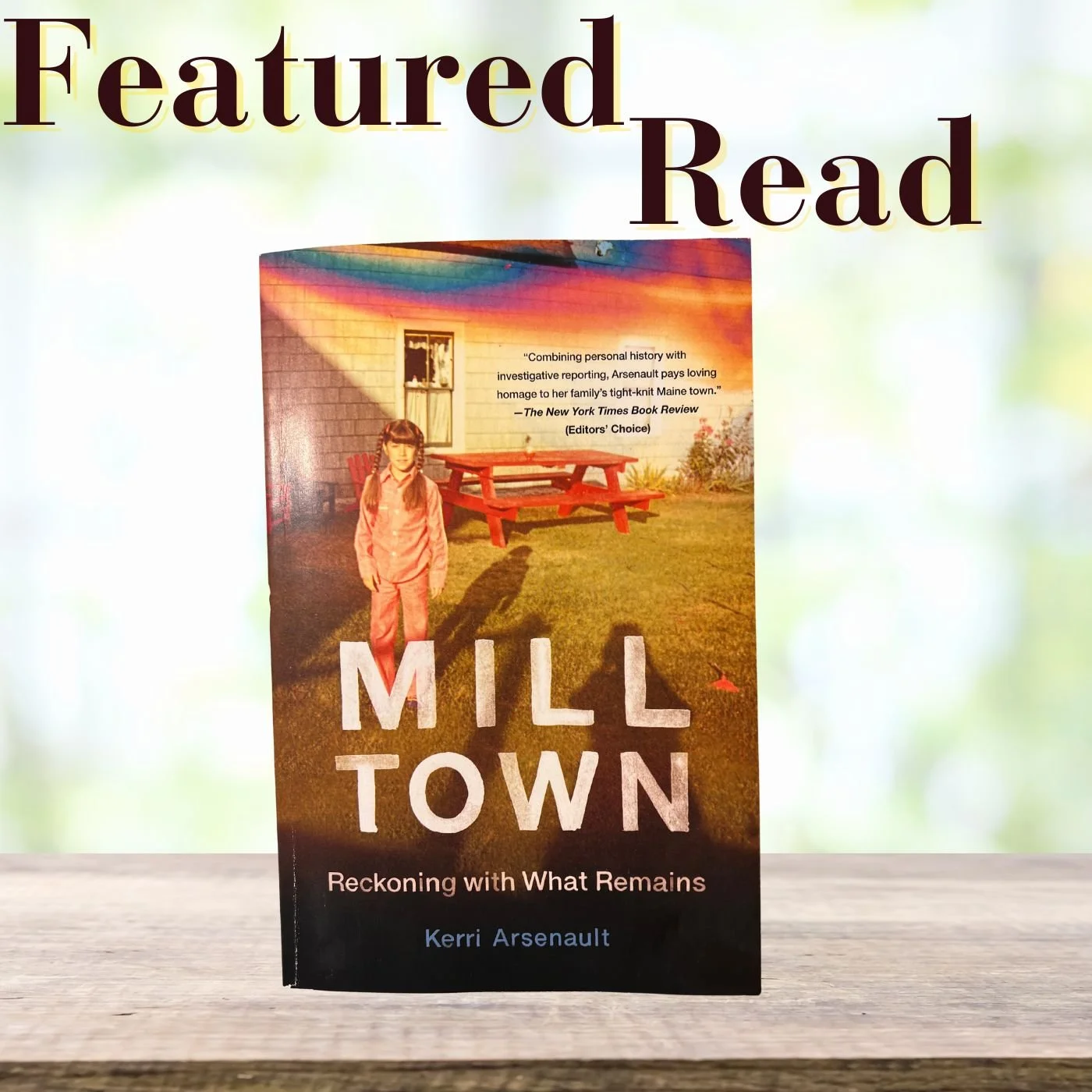Featured Read: Mill Town by Kerri Arsenault
“Thoreau spoke up for wildness. Rachel Carson spoke up for bald eagles; Father Cyr spoke up for the trees. But who will speak up for the trivial perch that snap at the ends of our hooks, or the mosquitos that crucify me? Will we wait until they are in danger to voice our disgust?”
What happens when the very thing that creates opportunity within a town, also causes the demise of its people and its surroundings? Mill Town: Reckoning with What Remains by Kerri Arsenault is a unique investigation of the environmental and health ramifications of a paper mill in her small hometown of Mexico, Maine, and its larger neighbor, Rumford. The nickname “Cancer Valley,” reverberates through the area’s Androscoggin River, as pollution from the paper mill contaminates the land and lives of those who reside nearby.
Arsenault delves deep into her own family history to uncover the truth behind the mill that employed her father and grandfather. Both men, unfortunately, have passed away due to cancer; no small coincidence after their years working at the paper mill. One by one, workers and their families become ill from carcinogens. Mill Town spans wide, connecting political, social, cultural, and moral threads, while constantly posing new questions: “So if the law fails us, what can we do?” (280).
Arsenault contemplates the dangers of capitalism and greed, as she researches the history of the mill, founded by Hugh Crisholm. She draws poignant political connections to Trump and makes a statement about the destruction often created by men in power, which applies to our world today: “The legacies powerful men construct almost always emerge from the debris of other people’s lives, and ignore the moral and social violations they commit along the way” (164).
Mill Town is quite unlike any book I’ve read before. Arsenault skillfully weaves years of environmental and historical research, interviews, personal experiences, and compassionate reflection. Just when I would settle into the tone of one section, she would move to another. Once I began to understand her heartfelt combination of memoir and investigative journalism, I enjoyed the wide scope and layered approach to Aresnault’s candid writing. I was particularly drawn to the sections of the book that held Arsenault’s memories with her family and interactions with the locals. She brought each voice to life, presenting their quirks and values without making caricatures of the blue-collar workers.
Mill Town poses as many (if not more) questions than it answers, questions we must ask ourselves about our pasts, our homes, and how we fight for the precious world around us. Despite no longer residing in Maine, Kerri Arsenault proves that she is not an outsider, and she will still fight for her town, its residents, and the future.
Writing Prompt:
Throughout Mill Town, Arsenault comments on the malleability of memory. As she reflects on her experiences growing up in Mexico, Maine, she questions what actually happened, and thus, the reliability of her memory: “Sometimes our recollections can be suspect because our memory accumulates actual events and muddles them with how we want them to unfold” (65) and “…it may be too easy to mistake beliefs for facts, to see what I want to see” (99).
Write a poem that focuses on a memory from more than a year ago. Lean into how your recollection of this memory is altered with time and how you may “mistake beliefs for facts.” What happened? Were there other people involved? How did they react and feel? Is this memory now comforting, upsetting, or painful?
Happy writing!

